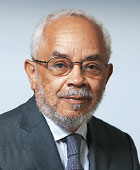I have been participating recently in a weekly group discussion with psychoanalysts. The talk generally focuses on scholarly writings of analysts, and sometimes others, who have been reflecting on race and its place in analytic discourse. I am indebted to this group’s interest in and disciplined exploration of this intriguing arena of scholarship and clinical practice. In my case, it has meant expanding my intellectual horizons and engaging with a literature that, without explicit encouragement, I would probably have left untouched.
Not long ago, the assigned reading was Chapter 12 (“After the Offense: Thoughts on Forgiveness”) from Donald Moss’s 2017 text At War With the Obvious: Disruptive Thinking in Psychoanalysis (Routledge). Moss is a well-known public intellectual who enjoys linking psychoanalysis to contemporary social and political problems. Our group selected this chapter for exploration because it focused on forgiveness, a theme we have encountered repeatedly in texts framing discrimination, caste, and privilege.
In the chapter’s introduction, Moss asserts that in the relation between any two people, “along with questions of retaliation, revenge, and punishment, the question of forgiveness emerges.” He suggests that our ignorance of the term “forgiveness” stems from its lack of structured meaning, as well as from a plethora of interpretations that we attribute to it. Moss uses the film “Facing Fear” to help explain his frustration with our tendency to use terms, inexact as they are, to communicate the fundamental principles by which many of us live. The film’s narrative portrays a young gay man’s urban encounter with a group of skinheads. They get into a fight with the youth and mercilessly beat him almost to death while taunting him.
Twenty years later, one of the skinheads and the victim of the attack realize that they are both working in the same museum. They eventually get past the chasm that separates them and start “working together, giving presentations on forgiveness.” Moss comments that the short film “celebrates forgiveness without going into its workings … .” The film leans on and confirms the idea that this sort of forgiveness is “best treated at its face value of self-evident good.” Our psychoanalyst-author is not pleased with this reflexive conventional outcome. He wants contemplation of a more balanced story that includes consideration of the gay man eschewing forgiveness and even planning some form of revenge. Moss proposes that the victim should be no more “obligated to forgive than he is to seek vengeance.” He dismisses, somewhat casually, the notion that forgiveness should be seen as the film’s hero, while revenge is sort of banished offscreen. He is similarly not pleased with the easy slide from forgiveness into strategic reconciliation, while vengeance is relegated ignominiously. Moss states that impulsive forgiveness or vengeance, while promising relief, is not the way of psychoanalysis. After the offense, there must be a pause that heralds the transformation of impulsive thinking, which is, I believe, his gift to us.
Not surprisingly at all, Donald Moss employs case vignettes to be more persuasive. In doing so, he lapses into a specialized style of narrative that requires of us a disciplined familiarity with clinical praxis. However, at the end of his reflections, he concludes that the important goal for clinician and patient is “construction of a zone safe enough to promote separateness and thought.” He underlines it. The essential task is for the patient “to find an exit from the … zone of pure reflex.” Then will come nonreflexive possibilities for forgiveness and revenge.
It seems to me an overly intellectualized demand. I thought psychoanalysis, with its renewed emphasis on the needs of the community, would engage a broader swath of citizenry with simpler tools. We want a reduction in vengeance, not a therapeutic interlude that exalts the analyst.
Moss is persistent. He establishes a link to Fyodor Dostoevsky’s famous The Brothers Karamazov and its account of Christ’s encounter with the Grand Inquisitor. That interaction partially mimics the biblical description of the temptations of Jesus Christ found in the Gospels of Matthew, Mark, and Luke. Moss conjures up the turning of stone into bread, the question of Christ’s protection by angels as he hurls himself from a height, and the offer of wealth in exchange for devil worship. After a long night of unsuccessful importuning by the Inquisitor, Jesus simply stands up, kisses the Inquisitor, and walks off. Moss asks us: “What do we do about this kiss?” He agrees we could interpret it as a kind of forgiveness, a convenient package all neatly tied up by Christianity. If we know that the “kiss means forgiveness, we will also know what forgiveness means.”
Moss is toying with us. He points out that there is nothing certain about the kiss. After all, there is no commentary and no hints about its qualities or the intentions of the kisser. Nevertheless, in a strange twist, he notes that Christ strikes a posture of love and offers the possibility of a new beginning, one that sets us on the task of forgiving. Yes, Jesus appears to take a long time to reflect before walking away. However, I think the more important point is that the posture of love precedes everything. It vitiates the theatricality of the pause and asks us to think more about the possibility of reflexive and impulsive charity, which mobilizes forgiveness. ■

